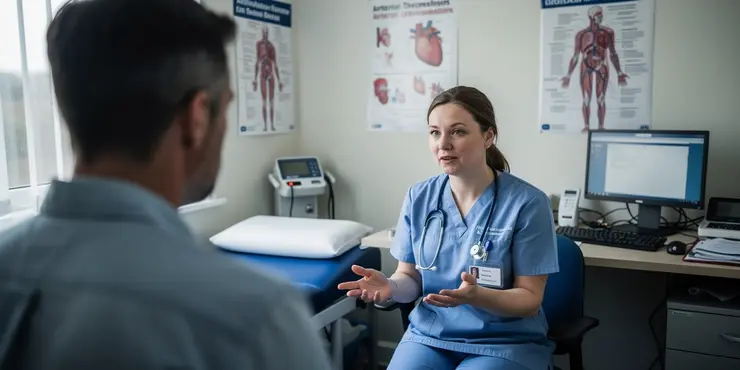
Find Help
More Items From Ergsy search
-
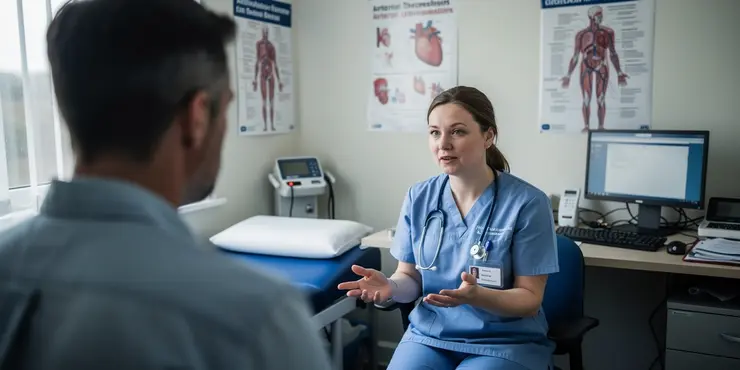
What are the symptoms of arterial thrombosis?
Relevance: 100%
-
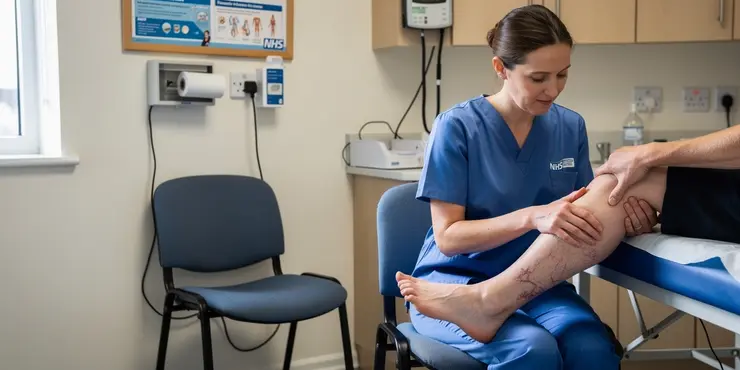
What are the types of thrombosis?
Relevance: 64%
-
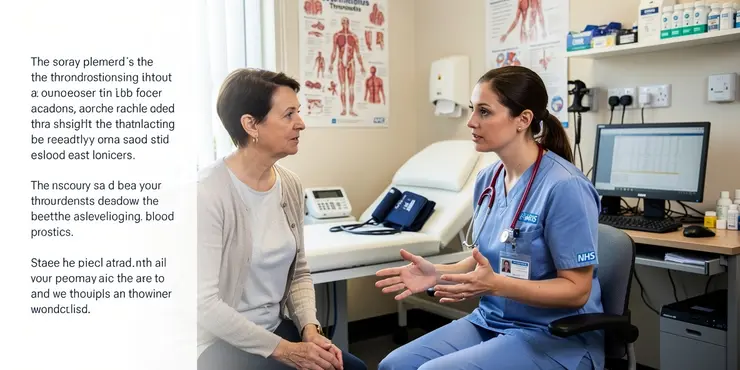
What is thrombosis?
Relevance: 63%
-
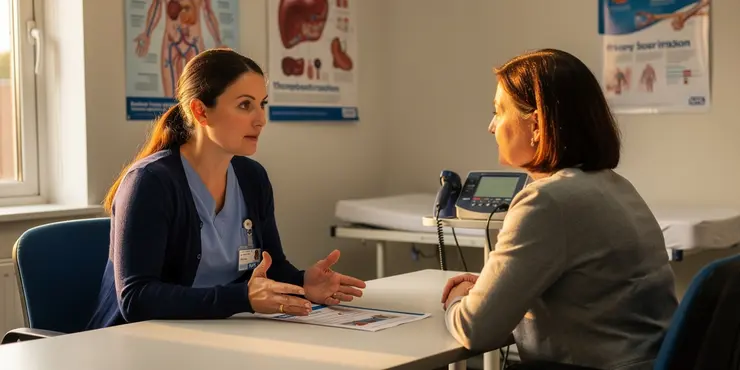
What causes thrombosis?
Relevance: 49%
-
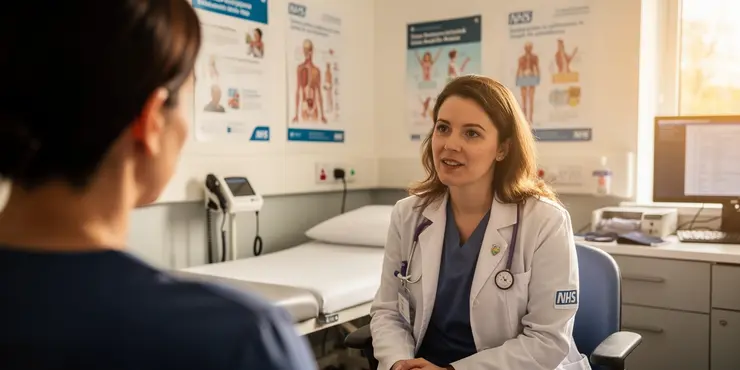
How is thrombosis treated?
Relevance: 47%
-
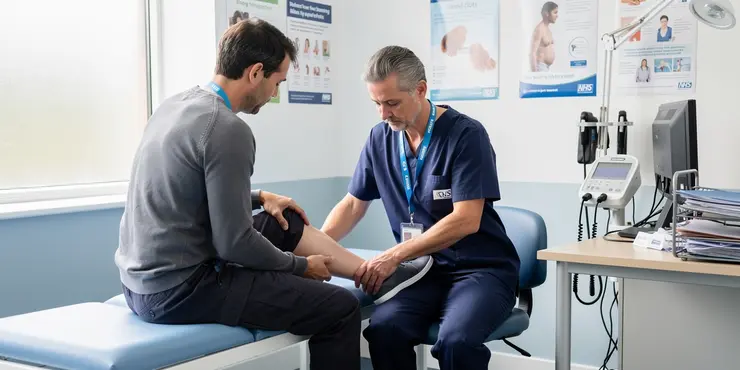
How is thrombosis diagnosed?
Relevance: 46%
-
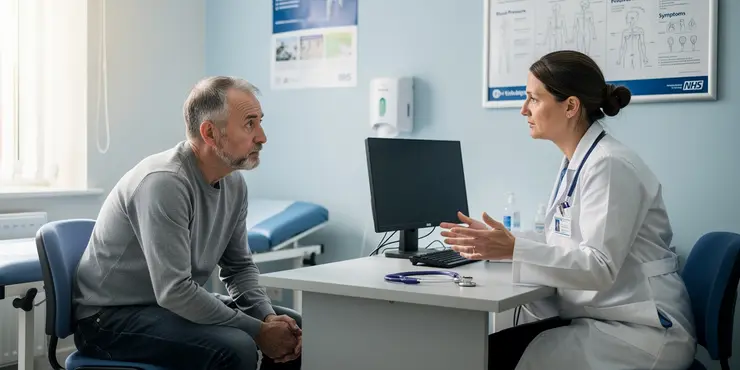
What are the symptoms of deep vein thrombosis (DVT)?
Relevance: 46%
-
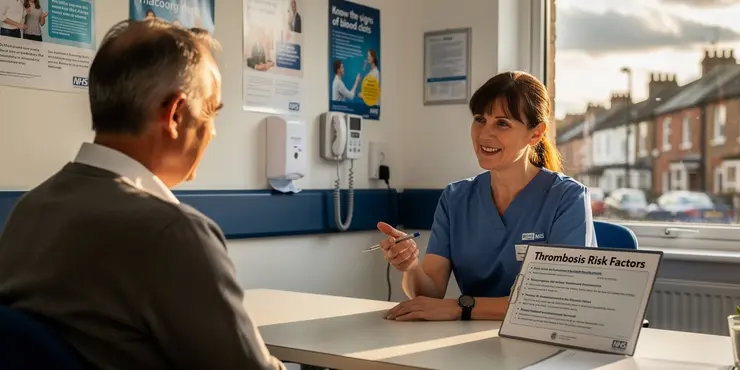
What are the risk factors for thrombosis?
Relevance: 45%
-
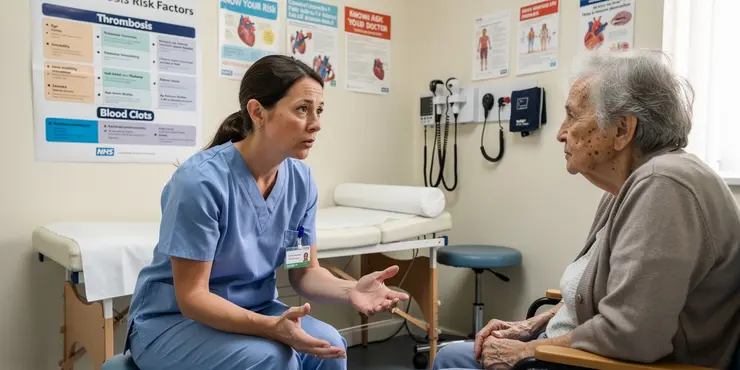
Who is at higher risk for thrombosis?
Relevance: 43%
-

A guide to hospital-acquired deep vein thrombosis and pulmonary embolism
Relevance: 40%
-
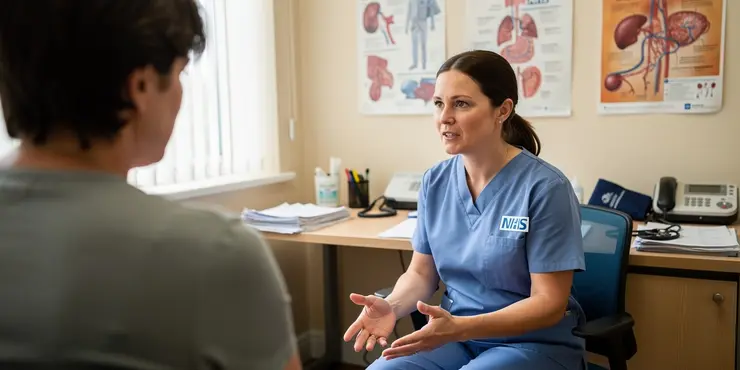
Why is thrombosis dangerous?
Relevance: 40%
-
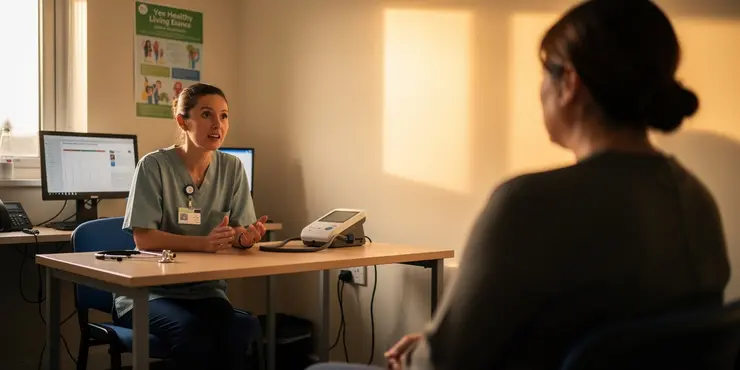
What lifestyle changes can help manage thrombosis risk?
Relevance: 39%
-
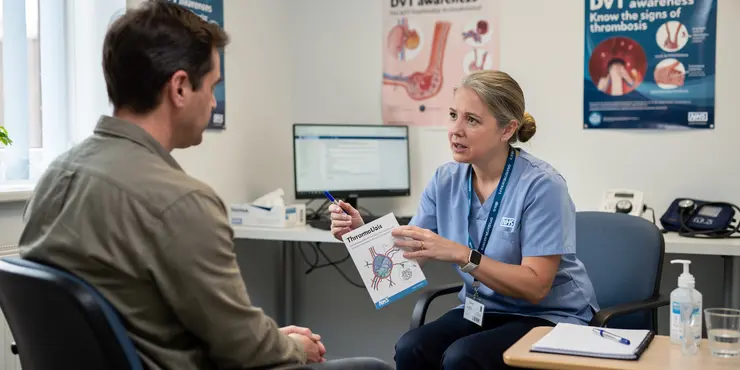
Is thrombosis a common condition?
Relevance: 37%
-
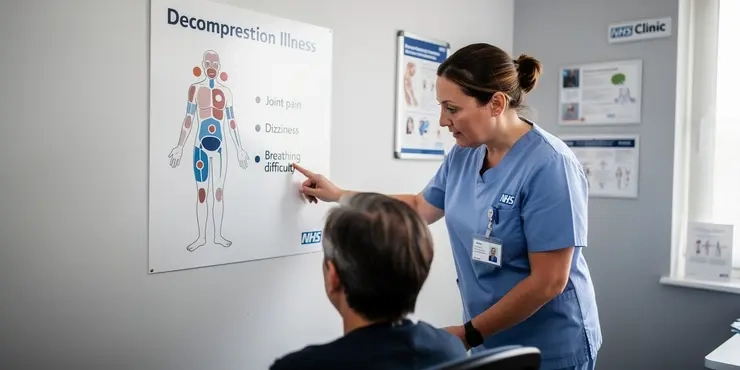
An Introduction to Decompression Illness: Signs & Symptoms”. Dr Roland Armes
Relevance: 24%
-
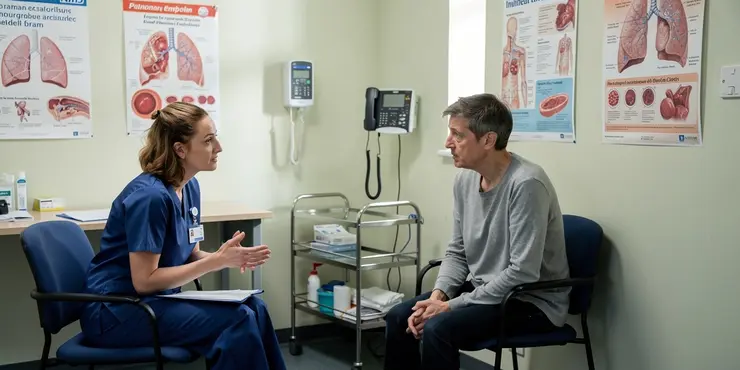
What is a pulmonary embolism?
Relevance: 23%
-
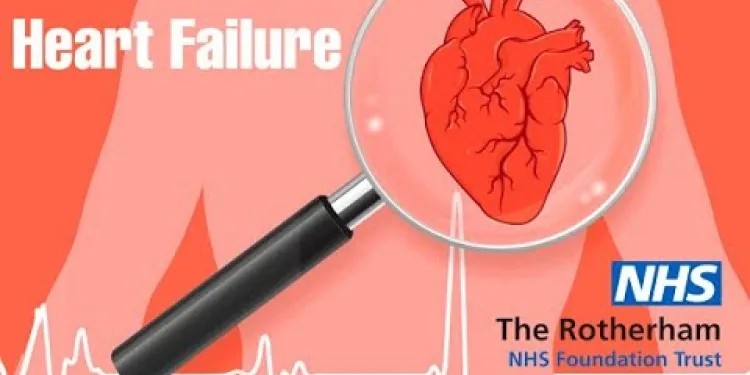
Heart Failure : Symptoms of heart failure
Relevance: 22%
-
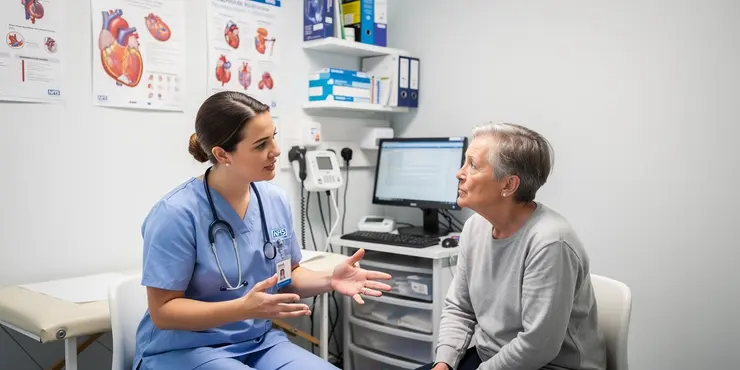
Can thrombosis be prevented?
Relevance: 20%
-
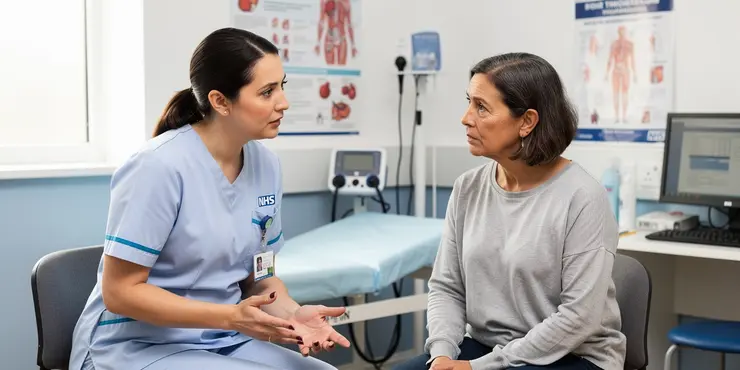
Can thrombosis recur?
Relevance: 20%
-

Coronary Bypass Grafting (CABG)
Relevance: 19%
-

The symptoms of gonorrhoea
Relevance: 18%
-
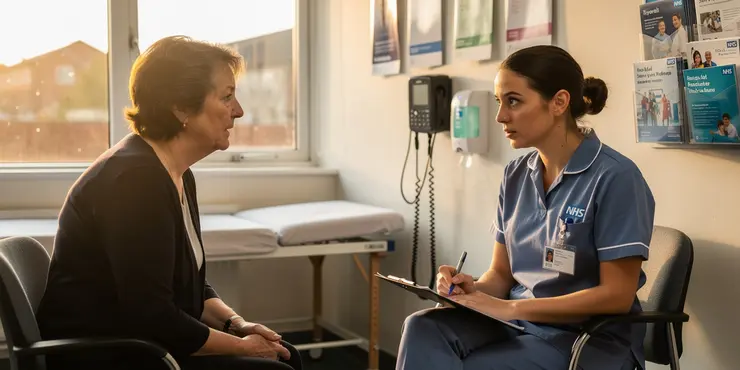
What are the symptoms of norovirus?
Relevance: 17%
-
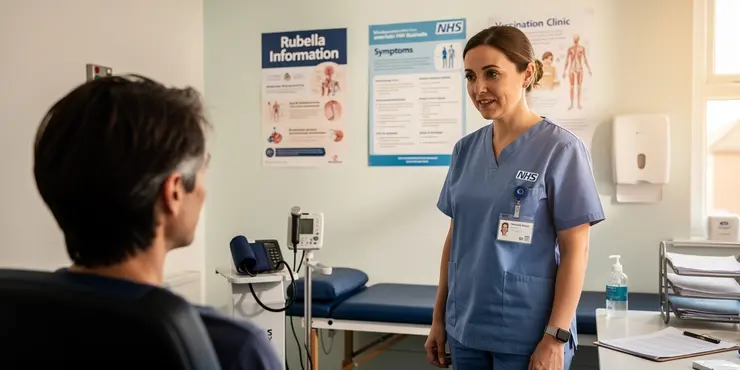
What are the symptoms of Rubella?
Relevance: 17%
-
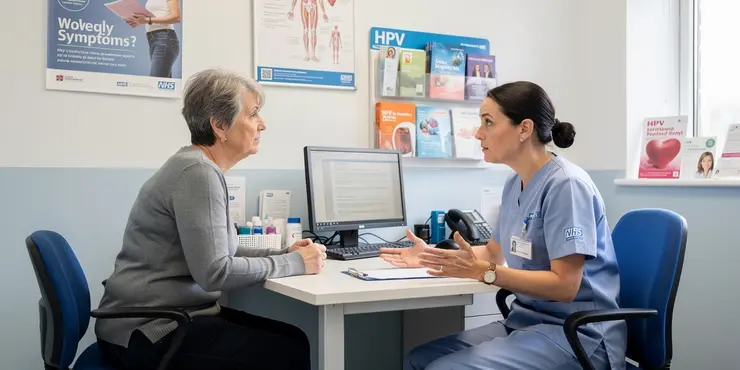
Are there symptoms of an HPV infection?
Relevance: 17%
-
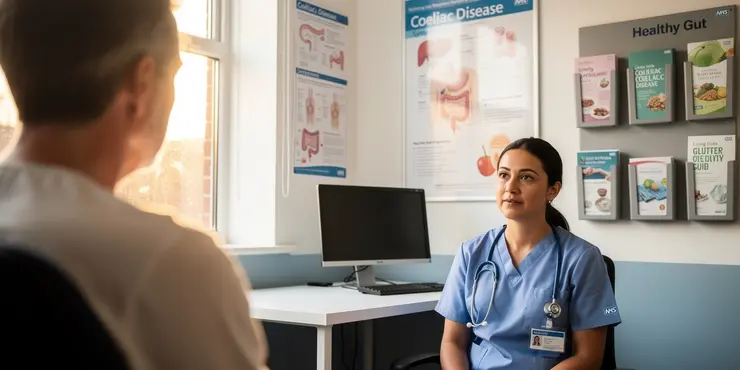
Symptoms of coeliac disease
Relevance: 17%
-

What are the symptoms of measles?
Relevance: 17%
-
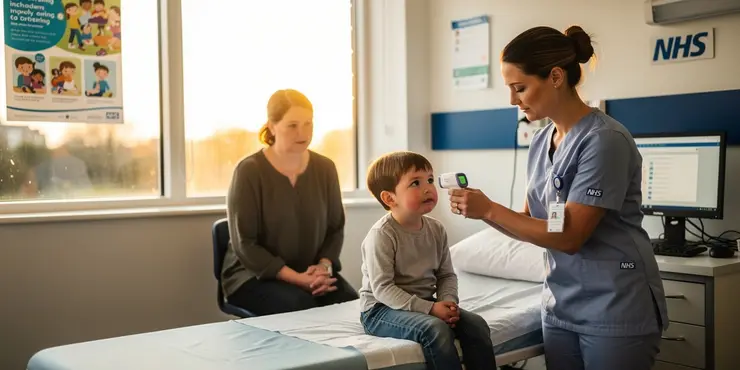
What are the symptoms of measles?
Relevance: 17%
-
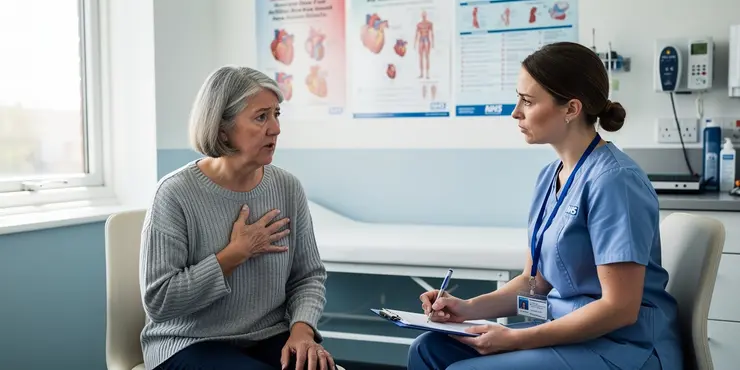
Can women have different heart attack symptoms than men?
Relevance: 17%
-

What are the symptoms of measles?
Relevance: 17%
-

What are the symptoms of SAD?
Relevance: 17%
-
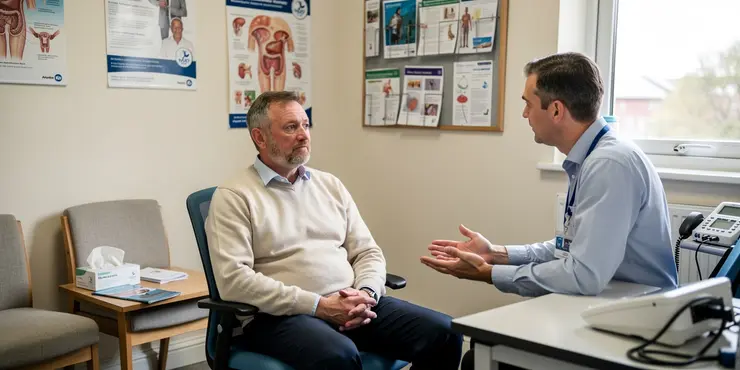
What are the symptoms of BPH?
Relevance: 17%
-

What are the symptoms of chickenpox?
Relevance: 17%
-
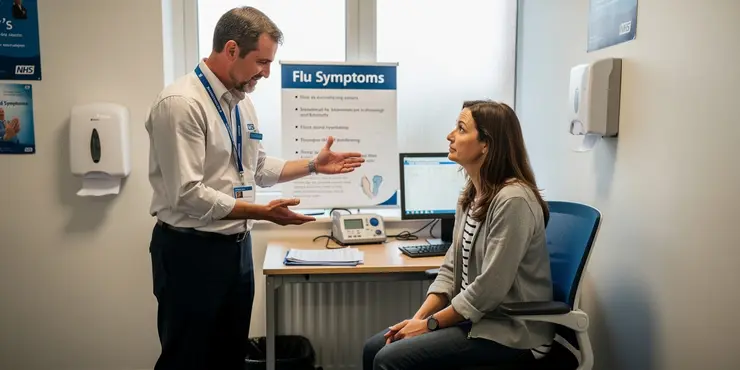
What are the symptoms of flu ?
Relevance: 17%
-
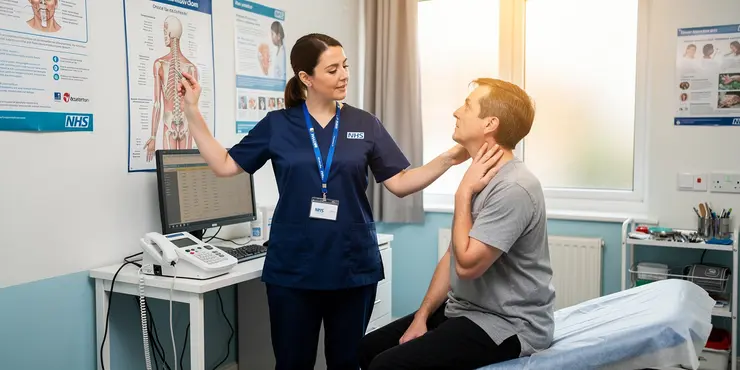
What are the symptoms of whiplash?
Relevance: 17%
-
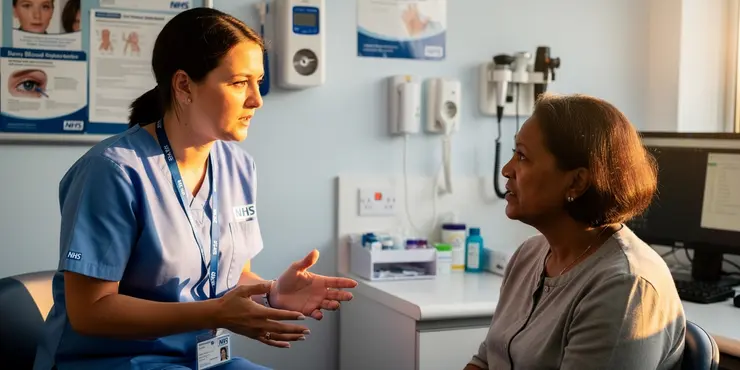
What are the symptoms of hypotony?
Relevance: 17%
-
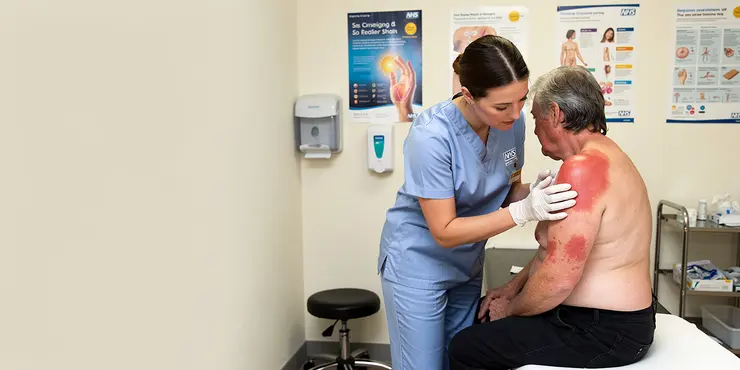
What are the symptoms of sunburn?
Relevance: 17%
-
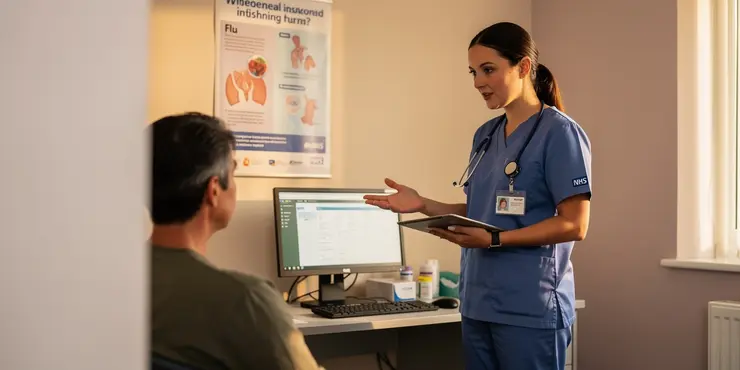
Symptoms of flu (influenza)
Relevance: 17%
-
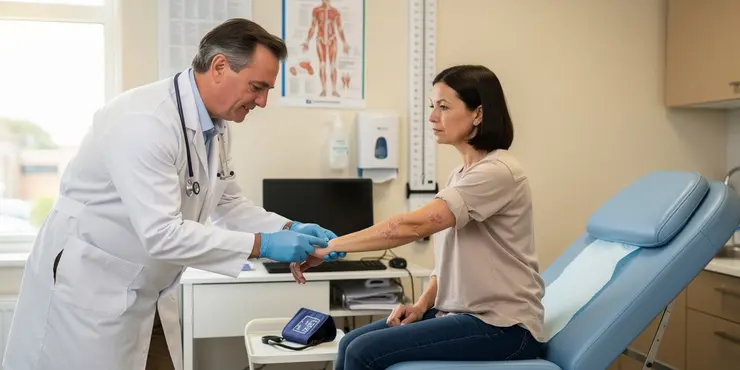
What are the symptoms of scabies?
Relevance: 17%
-
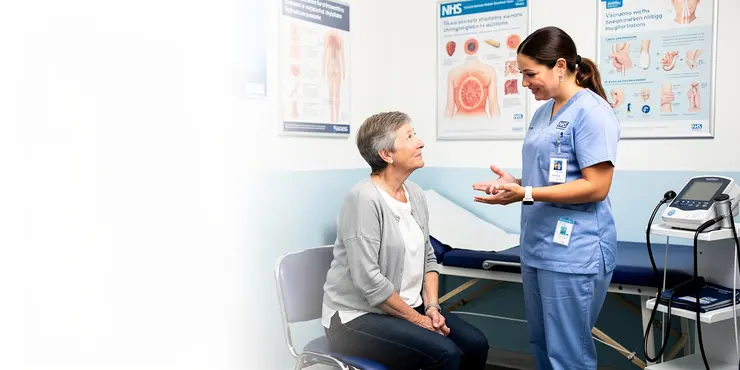
What are the symptoms of shingles?
Relevance: 17%
-

Is headache a symptom of a concussion?
Relevance: 17%
-
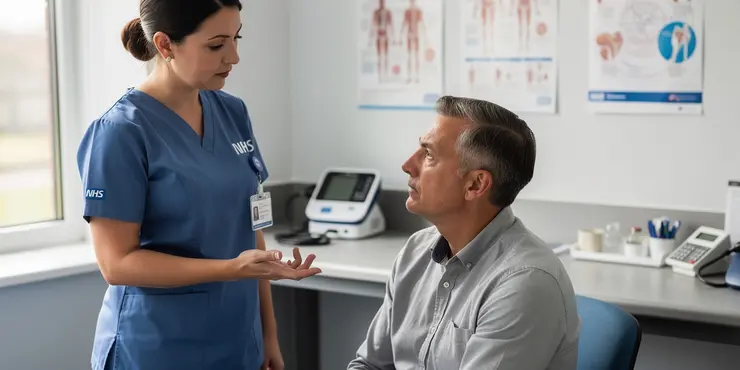
What are the symptoms of high blood pressure?
Relevance: 17%
Symptoms of Arterial Thrombosis
Arterial thrombosis occurs when a blood clot forms in an artery, potentially leading to serious health complications. Recognizing the symptoms early is crucial for timely medical intervention and can significantly affect outcomes. Below is an overview of the symptoms associated with arterial thrombosis, keeping in mind that they can vary depending on the location of the clot.
General Symptoms
While symptoms can depend on where the clot forms, there are some common signs of arterial thrombosis that may be present. These include sudden pain, swelling, tenderness, and redness in the affected area. The skin over the area may appear paler than usual or even blue. The extremity might feel cool to the touch, and a tingling sensation may be noted. Prompt medical evaluation is essential when these symptoms are observed.
Symptoms of a Clot in Coronal Arteries
When arterial thrombosis occurs in the coronary arteries, which supply blood to the heart, it can lead to a heart attack. Symptoms to watch for include severe chest pain that may radiate to the left arm or jaw, shortness of breath, nausea, sweating, and dizziness. These symptoms require immediate medical attention, as they can quickly lead to life-threatening conditions.
Symptoms of a Clot in Cerebral Arteries
If the thrombosis is in the cerebral arteries, it can result in an ischemic stroke. Symptoms of a stroke include sudden weakness or numbness, especially on one side of the body, confusion, difficulty speaking or understanding speech, trouble with sight in one or both eyes, difficulty walking, dizziness, loss of balance, and severe headaches with no known cause. Immediate emergency care is crucial to prevent long-term damage or disability.
Symptoms of a Clot in Peripheral Arteries
Arterial thrombosis can also occur in the peripheral arteries, affecting the limbs, most commonly the legs. This can cause symptoms such as claudication (pain in the legs while walking which eases with rest), coldness in the leg or foot, sores or wounds on the toes, feet, or legs that do not heal, and slower growth of hair or toenails. Without treatment, a clot in a peripheral artery can lead to tissue death and, potentially, amputation.
Risk Factors and Prevention
Understanding the risk factors for arterial thrombosis can help in prevention. High blood pressure, smoking, diabetes, high cholesterol, obesity, and a sedentary lifestyle all increase the risk of developing arterial clots. Lifestyle changes, regular health check-ups, and managing chronic conditions can reduce the risk of arterial thrombosis. If you experience any symptoms suggestive of arterial thrombosis, seek medical attention promptly.
Symptoms of Arterial Thrombosis
Arterial thrombosis happens when a blood clot blocks an artery. This can be dangerous. It is important to know the signs early so you can get help. Symptoms may change depending on where the clot is located.
General Symptoms
Common signs of arterial thrombosis are sudden pain, swelling, and redness in a specific area. The skin might look paler or bluish. The area might feel cold and tingly. If you notice these signs, it’s important to see a doctor quickly.
Symptoms of a Clot in Coronary Arteries
If a clot is in the coronary arteries that give blood to the heart, it can cause a heart attack. Look for severe chest pain that might go to your left arm or jaw, trouble breathing, feeling sick, sweating, and feeling dizzy. You need to get medical help right away if these happen.
Symptoms of a Clot in Cerebral Arteries
A clot in the cerebral arteries that supply blood to the brain can cause a stroke. Signs of a stroke include sudden weakness or numbness, mostly on one side of your body, confusion, trouble talking or knowing what others say, sight problems, trouble walking, dizziness, and bad headaches. Get emergency help immediately if you see these signs.
Symptoms of a Clot in Peripheral Arteries
A clot in the peripheral arteries usually affects the legs. It can cause pain in the legs when walking, which gets better with rest. Your leg or foot might feel cold, and you might get sores that don’t heal. Hair or toenails may grow slower. It’s important to treat this so it doesn’t cause more harm.
Risk Factors and Prevention
Certain things can increase the chance of getting arterial clots. These include high blood pressure, smoking, diabetes, high cholesterol, being overweight, and not moving around much. To lower the risk, you can make healthy lifestyle choices, go to regular medical check-ups, and manage ongoing health problems. If you notice symptoms of arterial clots, see a doctor as soon as possible.
Using tools like color overlays or text-to-speech software can help make reading easier. Breaking information into small parts can also help with understanding.
Frequently Asked Questions
What are the early symptoms of arterial thrombosis?
Early symptoms can include pain, swelling, and a feeling of heaviness in the affected limb or area.
Can arterial thrombosis cause chest pain?
Yes, if the thrombosis occurs in the coronary arteries, it can cause chest pain similar to a heart attack.
Is shortness of breath a symptom of arterial thrombosis?
Shortness of breath can occur if the thrombosis affects the lungs or heart.
What are symptoms if the thrombosis affects the legs?
Symptoms can include leg pain, swelling, and skin color changes in the affected leg.
Can arterial thrombosis cause dizziness?
Dizziness can occur if the thrombosis affects the blood flow to the brain.
What are common signs of arterial thrombosis in the brain?
Signs can include sudden headache, vision problems, confusion, and potentially stroke symptoms.
Can arterial thrombosis cause numbness?
Yes, numbness or weakness in the limbs can occur if the blood supply is blocked.
Is fatigue a possible symptom of arterial thrombosis?
Fatigue can occur, especially if the body's organs and tissues aren't being supplied with enough oxygen.
How does arterial thrombosis affect the abdomen?
It can cause severe abdominal pain and possibly nausea or vomiting if blood supply to the intestines is blocked.
Can there be no symptoms of arterial thrombosis?
In some cases, arterial thrombosis can be asymptomatic until a significant event like a heart attack or stroke occurs.
Does arterial thrombosis cause changes in skin temperature?
Yes, the affected area may feel cooler due to reduced blood flow.
Are there visible symptoms of arterial thrombosis?
Sometimes there might be visible swelling or a pale appearance in the affected area.
Can anxiety or panic attacks be a symptom of arterial thrombosis?
While not a direct symptom, the onset of chest pain or breathlessness from thrombosis can trigger anxiety or panic attacks.
Does arterial thrombosis cause rapid heart rate?
It can lead to a rapid or irregular heart rate, especially if the heart or lungs are affected.
What does arterial thrombosis in the kidneys feel like?
It can cause flank pain, nausea, and high blood pressure due to impaired kidney function.
Can arterial thrombosis cause vision problems?
If it affects arteries supplying the eyes or brain, it can lead to vision disturbances or loss.
Are headaches a symptom of arterial thrombosis?
Headaches can occur, particularly if the thrombosis affects blood flow to the brain.
What are the risk factors for developing arterial thrombosis symptoms?
Risk factors include smoking, obesity, high blood pressure, high cholesterol, and a sedentary lifestyle.
Can vomiting be a symptom of arterial thrombosis?
Vomiting can occur, especially if there is intense pain or the gastrointestinal system is affected.
How quickly do symptoms of arterial thrombosis develop?
Symptoms can develop suddenly if a large artery is blocked, or more gradually if a smaller artery is affected.
What are the early signs of a blood clot in an artery?
Early signs might be feeling pain, seeing swelling, and the area or limb feels heavy.
Can clots in arteries cause chest pain?
Yes, if a blood clot forms in the heart's arteries, it can make your chest hurt like a heart attack.
Can trouble breathing mean you have a blood clot in your artery?
If a blood clot is in your lungs or heart, you might find it hard to breathe.
What happens if a blood clot is in your legs?
A blood clot in your legs is called thrombosis. Here is what you may notice:
- Your leg might hurt.
- Your leg may swell up.
- The skin could turn red or change color.
- The skin might feel warm.
If you feel these symptoms, talk to a doctor.
You can use pictures or videos to help you understand more. Ask someone you trust to explain things if you need help.
There can be signs your leg is not well. You might feel pain in your leg. Your leg might get bigger or swell up. The skin on your leg might change color.
Can blocked blood vessels make you feel dizzy?
When blood vessels in your body get blocked, it can make your head spin and feel funny. This is called "dizziness." If you feel dizzy a lot, talk to a doctor. They can help you feel better.
Here are some things that might help:
- Ask someone you trust to help explain things to you.
- Use pictures or drawings to understand better.
- Write down questions you have and bring them to your doctor.
Sometimes, you might feel dizzy. This can happen if a blood clot stops blood from going to your brain.
What are common signs of a blood clot in the brain?
A blood clot in the brain can be very serious. Here are some signs to look out for:
- Trouble speaking or not being able to talk.
- Feeling weak or numb, especially on one side of the body.
- Problems seeing with one or both eyes.
- Dizziness or losing balance.
- A terrible headache that happens suddenly.
If you notice any of these signs, it is important to get help from a doctor right away.
Here are some things that can help when reading:
- Take your time and read slowly.
- Use a ruler or your finger to follow the words.
- Ask someone to read with you if you need help.
Signs can be a sudden headache, trouble seeing, feeling mixed-up, and maybe signs of a stroke.
Can blood clots in arteries cause numbness?
Blood clots in arteries are like a traffic jam in your blood vessels. When this happens, it can stop blood from reaching some parts of your body.
If blood doesn't reach certain spots, you might feel numbness there. It's like when your leg falls asleep, and it feels tingly or numb.
If you feel numbness a lot, tell an adult or see a doctor. They can help find out what's wrong.
Using simple language or pictures can help understand this better. Talking to someone about your feelings or worries can also be helpful.
Yes, your arms or legs might feel numb or weak if blood can't flow there.
Can feeling very tired be a sign of a blood clot in an artery?
Feeling very tired can happen if your body does not get enough oxygen. Oxygen is important because it helps your body work well.
What happens in the belly when there is a tummy blood clot?
It can make your tummy hurt a lot. You might also feel sick or throw up if the blood can't get to your tummy properly.
Can you have a blood clot without feeling sick?
Sometimes, a blood clot in an artery doesn't show any signs. You might not know it's there until it causes something serious, like a heart attack or a stroke.
Can a blood clot in an artery change how warm or cold the skin feels?
Yes, the area might feel colder because there is less blood going there.
Can you see any signs of artery clots?
Sometimes, you might see that the area is swollen or looks lighter than usual.
Can feeling very worried or having panic attacks be a sign of artery blockage?
Having a blood clot can sometimes cause chest pain or make it hard to breathe. These things might make you feel scared or anxious.
Can a blood clot in an artery make your heart beat fast?
It can make your heart beat fast or in a strange way. This happens if your heart or lungs are not well.
What happens if there is a blood clot in the kidneys?
It can cause pain in your side, make you feel sick, and give you high blood pressure because your kidneys are not working well.
Can a blood clot in an artery cause vision problems?
A blood clot can block blood flow in an artery. This blockage might cause problems with seeing. If you notice changes in your vision, tell a doctor. It is important to get help.
If the arteries that go to the eyes or brain are affected, it can cause problems seeing or even losing sight.
Can headaches be a sign of blood clots in arteries?
Sometimes, you can get a headache. This happens if there is a blood clot that makes it hard for blood to flow to the brain.
What can increase the chance of getting blood clots in the arteries?
Things that can make you more at risk are smoking, being very overweight, having high blood pressure, having high cholesterol, and not moving around much.
Can throwing up be a sign of a blood clot in an artery?
You might feel sick and throw up. This can happen if you are in a lot of pain or if your stomach is upset.
How fast do signs of artery blood clots show up?
Signs of a problem can happen fast if a big blood tube is blocked, or slowly if a smaller blood tube is blocked.
Useful Links
This website offers general information and is not a substitute for professional advice.
Always seek guidance from qualified professionals.
If you have any medical concerns or need urgent help, contact a healthcare professional or emergency services immediately.
Some of this content was generated with AI assistance. We’ve done our best to keep it accurate, helpful, and human-friendly.
- Ergsy carfully checks the information in the videos we provide here.
- Videos shown by Youtube after a video has completed, have NOT been reviewed by ERGSY.
- To view, click the arrow in centre of video.
- Most of the videos you find here will have subtitles and/or closed captions available.
- You may need to turn these on, and choose your preferred language.
- Go to the video you'd like to watch.
- If closed captions (CC) are available, settings will be visible on the bottom right of the video player.
- To turn on Captions, click settings .
- To turn off Captions, click settings again.
More Items From Ergsy search
-

What are the symptoms of arterial thrombosis?
Relevance: 100%
-

What are the types of thrombosis?
Relevance: 64%
-

What is thrombosis?
Relevance: 63%
-

What causes thrombosis?
Relevance: 49%
-

How is thrombosis treated?
Relevance: 47%
-

How is thrombosis diagnosed?
Relevance: 46%
-

What are the symptoms of deep vein thrombosis (DVT)?
Relevance: 46%
-

What are the risk factors for thrombosis?
Relevance: 45%
-

Who is at higher risk for thrombosis?
Relevance: 43%
-

A guide to hospital-acquired deep vein thrombosis and pulmonary embolism
Relevance: 40%
-

Why is thrombosis dangerous?
Relevance: 40%
-

What lifestyle changes can help manage thrombosis risk?
Relevance: 39%
-

Is thrombosis a common condition?
Relevance: 37%
-

An Introduction to Decompression Illness: Signs & Symptoms”. Dr Roland Armes
Relevance: 24%
-

What is a pulmonary embolism?
Relevance: 23%
-

Heart Failure : Symptoms of heart failure
Relevance: 22%
-

Can thrombosis be prevented?
Relevance: 20%
-

Can thrombosis recur?
Relevance: 20%
-

Coronary Bypass Grafting (CABG)
Relevance: 19%
-

The symptoms of gonorrhoea
Relevance: 18%
-

What are the symptoms of norovirus?
Relevance: 17%
-

What are the symptoms of Rubella?
Relevance: 17%
-

Are there symptoms of an HPV infection?
Relevance: 17%
-

Symptoms of coeliac disease
Relevance: 17%
-

What are the symptoms of measles?
Relevance: 17%
-

What are the symptoms of measles?
Relevance: 17%
-

Can women have different heart attack symptoms than men?
Relevance: 17%
-

What are the symptoms of measles?
Relevance: 17%
-

What are the symptoms of SAD?
Relevance: 17%
-

What are the symptoms of BPH?
Relevance: 17%
-

What are the symptoms of chickenpox?
Relevance: 17%
-

What are the symptoms of flu ?
Relevance: 17%
-

What are the symptoms of whiplash?
Relevance: 17%
-

What are the symptoms of hypotony?
Relevance: 17%
-

What are the symptoms of sunburn?
Relevance: 17%
-

Symptoms of flu (influenza)
Relevance: 17%
-

What are the symptoms of scabies?
Relevance: 17%
-

What are the symptoms of shingles?
Relevance: 17%
-

Is headache a symptom of a concussion?
Relevance: 17%
-

What are the symptoms of high blood pressure?
Relevance: 17%


